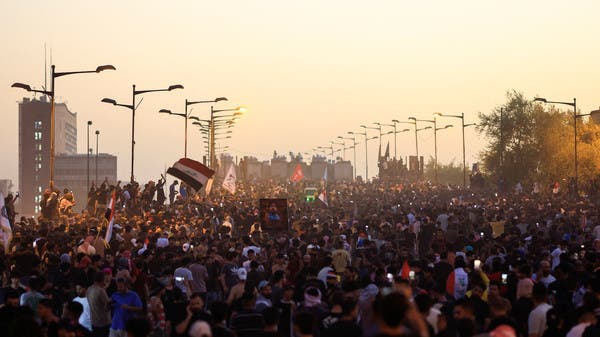In light of the protests now occurring in the capital, Baghdad, the United Nations mission in Iraq urged everyone to refrain from violence and stop an escalation today, Saturday.
On the third anniversary of the Baghdad protests in October 2019, she stated on her Twitter account, “We emphasise that the freedom to peaceful protest is crucial to democracy.”
The mission also commended the Iraqi security forces for their “so far” excellent handling of the ongoing protests.
Nine citizens and 19 security personnel were hurt during today’s demonstrations in the capital, according to a statement from the Security Media Cell.
To mark the third anniversary of the significant and unprecedented uprising against authority, the corrupting influence of the ruling class, and the poor management of public services in a nation experiencing total political paralysis, thousands of protesters gathered in Baghdad.
As they gathered in the iconic Tahrir Square to remember, the protestors, who were primarily young people, also chanted against politicians and militias while holding up Iraqi flags and images of the 2019 dead.
In order to restrict entry to the Green Zone, which is home to Western embassies and government institutions, they also congregated at the entrance to the Jumhuriya Bridge. This bridge was blocked off by three concrete blocks placed by security personnel.
It is significant that nationwide protests broke out in October 2019—particularly in the south’s impoverished governorates.
And it lasted for several months in the oil-rich nation. During that time, hundreds of thousands of protesters set up camp in Tahrir Square and called for an end to corruption, the expansion of unemployment, the failure of the infrastructure, the absence of democracy, and other issues.
However, the Covid pandemic’s constraints and the violence that has left nearly 600 people dead and 30,000 injured have sapped its momentum.
But three years later, little has altered in Iraq. The political scene is still paralysed, and the mood is tense.
Muqtada al-Sadr and the coordination framework, the two main political rivals, are at odds over the choice of a new prime minister and the potential for early legislative elections.
The important Shiite leader Muqtada al-Sadr wants the coordinating framework, which includes pro-Iranian factions, to form a government before any elections, but his opponent wants it to happen right away.
The United Nations Mission in Iraq: We urge all parties to stop the bloodshed and escalation.

